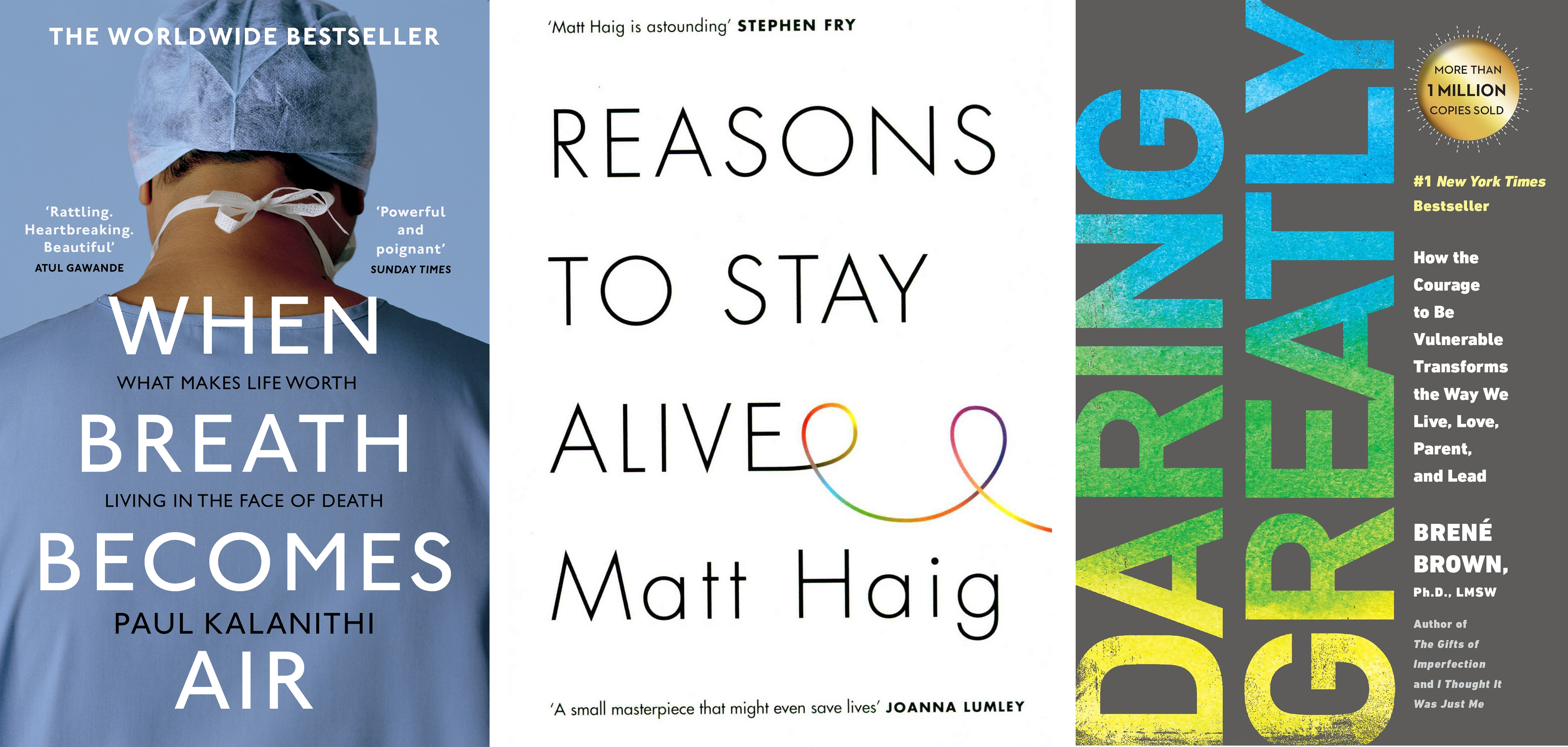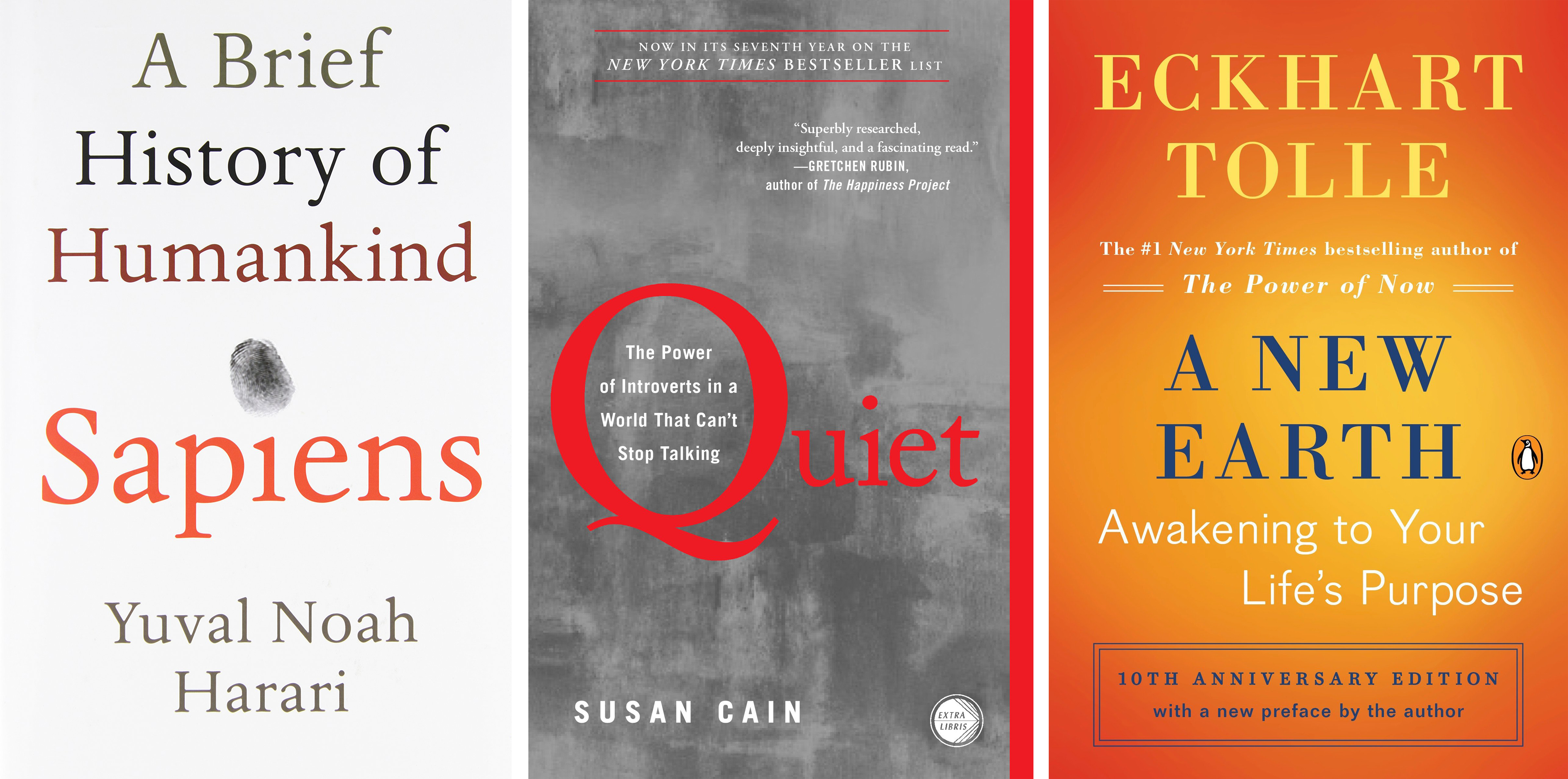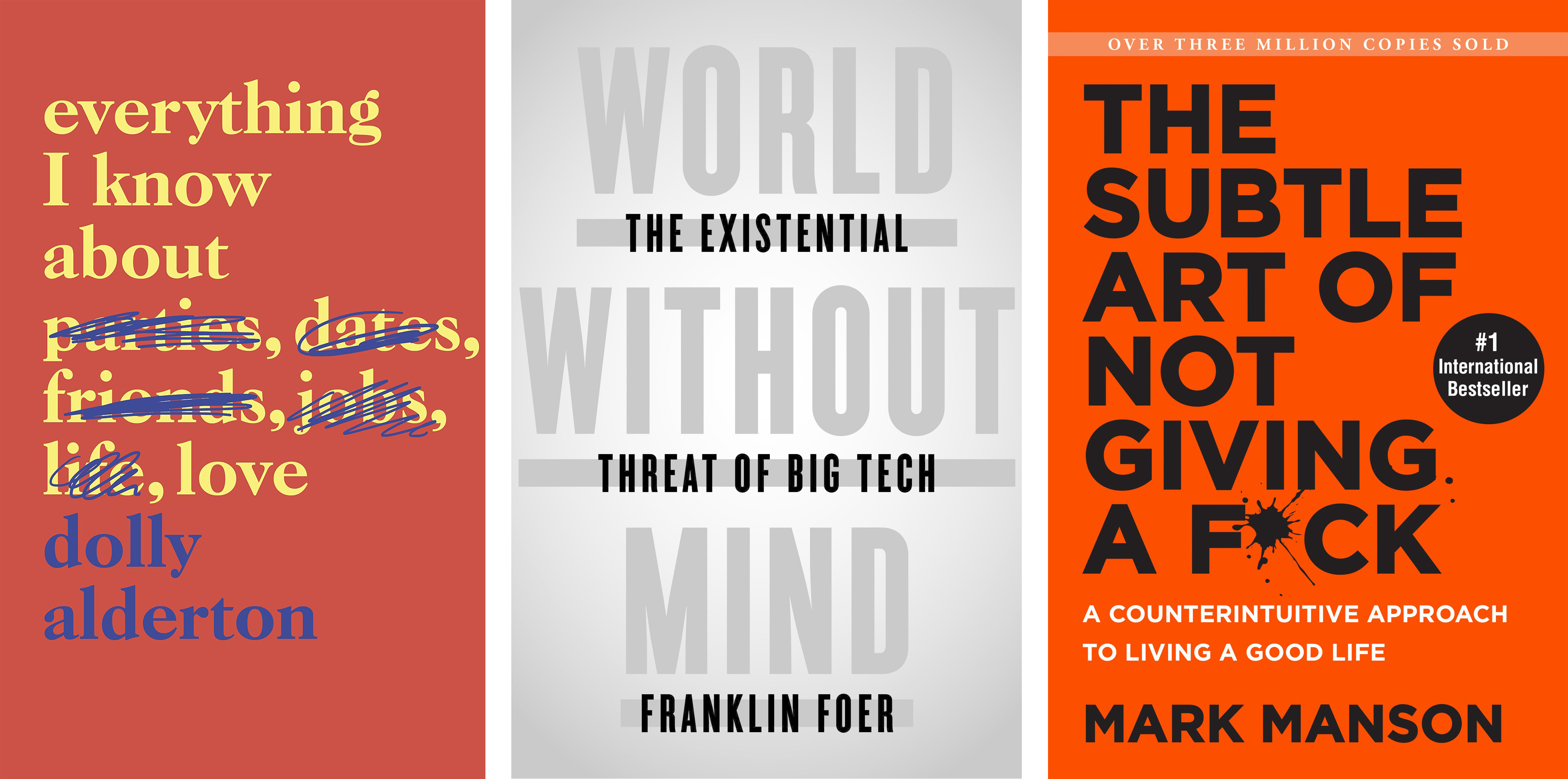16th November 2018
What Should I Read? The search for understanding
Humans are full of questions – who am I? Why am I here? How can I better understand myself and other people? How can I live a more meaningful existence?
Psychology, philosophy, anthropology, sociology and science have been exploring these questions for hundreds of years – and there are hundreds of books to prove it! To equip you in this search for greater understanding, check out some top non-fiction picks from psychology student Phuong.
When Breath Becomes Air – Paul Kalanithi
Memoir, medicine, mortality
This is a touching book about a neurosurgeon who approaches stage IV cancer before accomplishing his goal to explore the question ‘What Makes Life Meaningful?’. While approaching his death, Paul still had the drive to take care of his patients, his wife and children. He used his love for literature to finish this book before he passed away.
Human connection, identity, and mortality are powerful themes throughout the story. What does it mean to be alive in the face of death?
This memoir is emotional. Be ready to take tissues!!
–
Reasons To Stay Alive – Matt Haig
Mental health, memoir, psychology, self-help
Matt writes about mental health in the most emotional, expressive, and honest way. He guides readers through his long years of depression and recovery. Through Matt’s writing, readers can experience the mind of an individual suffering from depression, and the real pain that comes with it. The book is also inspirational however, presenting different perspectives on social norms and giving a sense of hope by providing practical advice and solutions to problems.
The book is suitable for any reader, especially those who are suffering or have suffered from depression, and many lines from the book will be relatable to a lot of people. It is also appropriate reading for beginners, since this is a small book consisting of about 200 pages and vocabulary that is accessible and not too formal.
Also available by this author – “Notes on a Nervous Planet”
–
Daring Greatly – Brene Brown
Self-help, psychology
In a culture where people are afraid of opening up, speaking their true thoughts, encountering failures, and approaching risky situations, it has been argued that ‘vulnerability’ may be a great answer to enhance deeper human connection and to approach new and exciting opportunities.
This book can provide help to everyone; some examples that Brown discusses include:
- The vulnerability to be openly engaged in a difficult family discussion
- The vulnerability to enter a new relationship with the fear of being heartbroken or rejected
- The vulnerability to stand up for your views in a group discussion
- The vulnerability to make mistakes when approaching new and exciting challenges
Also available by this author – “Dare to Lead”; “Braving the Wilderness”
Sapiens: A Brief History of Humankind – Yuval Noah Harari
Science, history, philosophy, anthropology
Sapiens provides an overview of human history, from the first humans ever walked on Earth, and the different human species who have been inhabiting Earth, to the achievements of agricultural and scientific revolutions. This study provokes interesting questions: How did our species come to dominate others? How did we come up with the concepts of gods, nations, and human rights? Why did our ancestors create kingdoms and cities? What will our future look like?
Through a combination of historical facts and intriguing insights, Harari challenges the way we think about humans’ thoughts, behaviours, power, and future.
Also available by this author – “Homo Deus: A Brief History of Tomorrow”; “21 Lessons for the 21st Century”
–
A Way of Being – Carl R. Rogers, Irvin D. Yalom
Psychology, philosophy
“To be a person…this would be painful, costly, sometimes even terrifying. But it would be very precious: to be oneself is worth a high price.”
This book is different from Carl Rogers’ other works, focusing more on his philosophical perspectives and experiences rather than theoretical ideas about humanistic psychology and client-centred therapy. This is a book about being human, loving oneself, and loving others – Rogers encourages readers to be open and accepting of others, to be risk-takers, to be questioners of the status quo & traditional authority, and to always be true to oneself.
Anyone can read this book, including both casually-interested people, and mental health professionals. It includes three main sections: Roger’s personal experiences, the person-centred approach of psychotherapy, and its application to education.
Also available by Irvin D Yalon – “When Nietzsche Wept”
–
Quiet: The Power of Introverts in a World That Can’t Stop Talking – Susan Cain
Psychology, self-help, sociology
We are in an era where extroverted leaders, friends who are known to be the ‘life of a party’, group members who speak their ideas out the most, are often respected more than their peers – those who prefer to stay more silent in group discussions, who spend their weekends with books, and who stay closer to the walls in parties. These underrepresented groups are known to be ‘introverts’. In this book, Susan takes us inside the minds of introverts, resolving any misconceptions you may have about introversion, and witnessing to how amazing introverts can be. If you have any introverted friend, family members, partners – or if you are one yourself – this will give you a decent understanding of what is like to be an introvert, and of their important place in the world
–
A New Earth: Awakening to Your Life’s Purpose – Eckhart Tolle
Philosophy, spirituality
In this book, Eckhart emphasises our reliance on ‘ego’, and how we carry this dysfunctional perception throughout most areas of our life, e.g.
- How when we observe an artwork or listen to a music piece, we mostly see how we can connect with it rather than appreciating the work for the way it is (without associating ourselves with it)
- How having egos (our sense of power and greed) leads to wars and conflicts
- How being constantly worried with negative thoughts (future and present) can prevent us from noticing the beauty emerging in the experiences around us
- How thinking that we have complete possession of an object or a person affects our emotional wellbeing negatively when situations do not go our way
He goes on to provide different perceptions of how to think about our self-identitie,s based on how we choose to create ourselves, rather than associating our identities with our thoughts (we are more than our thoughts!). He reminds readers of the ways that self-identities are constantly changing, so it is okay to have an ambiguous and limited answer to the question ‘Who Am I?’ (we can almost be and do almost anything we choose!)
He inspires readers toward spiritual and mental self-transformation, and provides thought-provoking guides on how to build a better world.
Also available as an e-book; also by this author – “The Power of Now”
World Without Mind: The Existential Threat of Big Tech – Franklin Foer
Technology, society, business, philosophy
As we are living in a digital era, we may not always realise the big influence big companies are having on our thoughts and choices: we rely on Google for information, we shop on Amazon, we socialise and post about our daily lives on Facebook, and we turn to Apple for entertainment.
Franklin argues that these companies are intoxicating our minds, pulling us into conformity and away from private and autonomous thoughts. He helps readers to understand how big companies gain success and automate social, political, and intellectual life, and provides a new perspective on how the biggest corporations are affecting individuals negatively. The book is not fatalistic, however; he encourages readers to reclaim private authorities, and be aware of how they intellectually and liberally interact with the world.
–
The Subtle Art of Not Giving A F*ck – Mark Manson
Personal Development, humour
In daily lives, we care about too many unimportant things, such as the inconvenient weather, unsavoury meals, unsatisfactory grades or someone who just offended us. Most of our worries are unwanted, which affects our time and ways of living. We are often driven and distracted by life’s unwanted drama.
Mark, a blogger who quitted his finance job to become an entrepreneurial relationship adviser, writes about ‘giving a f*ck’ as a way to focus your life – we all have a limited number of f*cks to give, so we must pay attention to where and who we give them to. Not giving a f*ck about nonessential things is not an easy task – but, developing the ability to manage the f*cks you give is the essence of strength and integrity. Not giving a f*ck does not mean you are indifferent; it means you are comfortable with being different, and committed to give a f*ck about important things.
–
Everything I Know About Love – Dolly Alderton
Memoir, relationships, love
This is a heart-breaking, humorous, heart-warming autobiography about growing up while experiencing all different kinds of love – from open relationships, toxic relationships, to romantic relationships. Dolly also includes her relatable experiences with getting a job, going to parties, getting drunk, and being dumped. She represents early adulthood in all of its grubby, hopeful uncertainty, with stories that are relatable to many people’s high school and uni experiences.
Suitable for anyone, whether single/dating/in a relationship/married; this is a book about bad dates, good friends, and recognising that you – even being alone – are enough.




